Stuart Harrison's Blog
February 19, 2015
H is for Hawk – Helen Macdonald’s memoir
 English naturalist and now author, Helen Macdonald, just won the Costa prize for non-fiction for a book that describes how she trained a hawk, apparently to help her cope with the death of her father. I haven’t read the book yet, but the author states in an interview that she was partly inspired by a book she read as a child, by T.H. White, an English author who in the thirties wrote a book called The Goshawk.
English naturalist and now author, Helen Macdonald, just won the Costa prize for non-fiction for a book that describes how she trained a hawk, apparently to help her cope with the death of her father. I haven’t read the book yet, but the author states in an interview that she was partly inspired by a book she read as a child, by T.H. White, an English author who in the thirties wrote a book called The Goshawk.
The parallels with my novel, The Snow Falcon, struck me at once. My novel, originally published in 2000, and republished on-line in 2013 as a revised version, is about a man who trains an injured falcon (an Arctic Gyr Falcon) so that he can return it to the wild. At the same time, training the falcon turns out to be his way back to the world after a troubled life coping with mental illness in his family, though the Pacific Northwest town where he grew up, and where the story takes place, is hostile to his presence. In the story, he is given a book which plays a part in the narrative. It is The Goshawk, by T.H. White, a book that I read when I was at school.
As I write, I’m looking at a photograph taken from a newspaper, of Helen Macdonald holding an Arctic Gyr Falcon on her fist.
Anyway, congratulations to Helen Macdonald.
And the rights to my novel are available!
July 22, 2014
Third Book In The Pistford Trilogy
Don’t get too excited because it’s not finished yet. That’s the bad news, but the good news is that it will be worth the wait. I hope.
Writing novels can be a perplexing process. Sometimes, everything just flows and the  story appears like film off a movie reel. Other times it feels that way, until you go to view the unedited finished product, and discover to your horror that something is wrong. Badly wrong. The scenes all move from one to the other in a logical kind of order and the characters speak their lines and make their marks, but somehow the whole thing seems oddly flat. It’s as if the actors keep looking towards the director as if to say, am I doing this right, because it feels like something is missing? And the director, that’s me, tells the actors to do it again, only this time try it this way, say that line with more feeling, more emotion. Okay, the actors say, but I know they’re not feeling it because the lines on the page are dead. They have expired and the words lie there like the corpses of small birds battered by a storm. I try to breathe life into them, but Frankenstein tried that and all he got for his troubles was a monster, right?
story appears like film off a movie reel. Other times it feels that way, until you go to view the unedited finished product, and discover to your horror that something is wrong. Badly wrong. The scenes all move from one to the other in a logical kind of order and the characters speak their lines and make their marks, but somehow the whole thing seems oddly flat. It’s as if the actors keep looking towards the director as if to say, am I doing this right, because it feels like something is missing? And the director, that’s me, tells the actors to do it again, only this time try it this way, say that line with more feeling, more emotion. Okay, the actors say, but I know they’re not feeling it because the lines on the page are dead. They have expired and the words lie there like the corpses of small birds battered by a storm. I try to breathe life into them, but Frankenstein tried that and all he got for his troubles was a monster, right?
Okay, movie metaphors aside, what happened with my first draft was that I knew it wasn’t right, but I thought I could fix it. Halfway through the second draft I realised my fix wasn’t working, so I stopped writing and started trying to figure out what the problem was. After a few days I had achieved nothing, so I took a break from the novel, which is often a good way to clear my thinking, and I spent a couple of weeks doing other things that I’d been neglecting, like approaching some agents about representation. I would really like to see The Flyer and the rest of the trilogy published in paperback and made available in bookstores. Publishing them as e-books doesn’t really work for this type of book, in my opinion, simply because a large proportion of the people who read non-genre type fiction don’t use e-readers.
Anyway, back to the novel in progress. When I came back to it, it was immediately clear that my earlier feeling that it wasn’t working was bang on the nail. I had sort of hoped I’d be wrong, but I wasn’t. I still couldn’t see exactly why it wasn’t working. Without going into too much detail, I had written a story set during WW2 that was part espionage drama and is mostly told from the point of view of Rose, William and Elizabeth’s daughter from We Should Dance, though at the beginning Rose is unaware that William is her real father. There was actually nothing really wrong with the story. The plot was good. I liked the characters and I felt that the novel had the right blend of pace and depth. It took me another week to work out why it didn’t feel right. The problem was that it didn’t really feel like a continuation of the other two books. Duh!
Sometimes it is the really obvious things that are the hardest to see. When I first set out to write The Flyer, I had a clear idea of what it would be about. I wanted to write the story of William, who grows up feeling lonely and isolated because he has no place in the world. He wants acceptance and love, but the people who can give him those things reject him and this makes him bitter. It was that internal conflict that I wanted to write about and I chose the setting of WW1 flying because being a pilot in those days was a very solitary and individual role and it seemed to fit William’s persona. I also wrote the story in a very subdued style because I wanted the writing to reflect William’s sense of removal from the mainstream of the world he lives in. I’m proud of the end result. The Flyer is the book I always wanted to write.
The sequel, We Should Dance, follows William’s life after the war. He is still battling with the same internal issues, which partly explains his almost obsessive love for Elizabeth. He and the other characters begin to leave their youth and the war behind in this book, but at the heart of the story is William’s determination to make his way in the world, to find his place. At the end of it he is in his mid-forties.
The problem with the third book in the series, I came to realize, was that it wasn’t about William. I had decided that I was finished with William’s story, and that the unresolved issues that remained between him and the other characters would be played out with the next generation. William only appeared at the sidelines. There is a scene in the book where Rose as an adult meets William for the first time and discovers that he is her real father. I wrote it over and over, trying to make it work, but it just sat there like cold pudding. It was because I was writing it from Rose’s point of view. There was nothing wrong with the way I described her feelings and reactions, but it was William’s feelings I should have been writing about.
William had always felt excluded from society, rejected by the class that Elizabeth and Christopher belonged to by birth, and rejected personally by Christopher’s betrayals. Even when William and Elizabeth had a child together, Christopher conspired to make sure that William could never know her. When Rose learns the truth at last, her reaction isn’t to throw her arms around William and cry Daddy, but rather she sees him as somebody her mother has conducted a secret affair with for years. She is hurt and confused and she rejects him. How does William feel, especially as his own son despises him?
So, I have to start my story again. I thought I had finished with William, but it was always William I was writing about. I think this third book will be the end. A trilogy rather than a series. I want to be as proud of this one as I am of The Flyer, so I won’t rush it. In the meantime, I thank you for your patience.
June 29, 2014
Let’s Talk Sex
Catchy title, right? It got your attention after all, which is the point of the exercise and also says something about the subject of this essay, which concerns sex in fiction. When does it work and when does it fail? Does it ever work, in fact? In my opinion the answer is not only a resounding yes, but that sex can be necessary in a story, even if the story isn’t overtly about sex at all. In the case of my own novel, We Should Dance, there are quite a few sex scenes that leave little to the imagination. They are there because they relate to a specific character whose sexual nature is pivotal to the overall 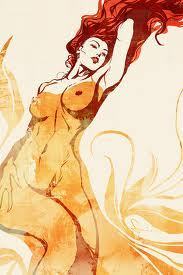 story, but I think those scenes, and more importantly the character I’m talking about, have created a divide among readers. There are those who really love the book, and those who feel exactly the opposite. I suspect that neither the story nor the quality of the writing have anything to do with the views of those who dislike the book. It is more that they disapprove of the sex.
story, but I think those scenes, and more importantly the character I’m talking about, have created a divide among readers. There are those who really love the book, and those who feel exactly the opposite. I suspect that neither the story nor the quality of the writing have anything to do with the views of those who dislike the book. It is more that they disapprove of the sex.
Sex sells, as the adage goes. It’s long been said that modern culture, particularly in the decadent West, is saturated with sexual imagery. We see it on magazine covers, in newspapers (if anybody reads those anymore) on TV ads and billboards, shop windows and in fact just about anywhere where products of almost any description are sold. The bottom line in advertising appears to be that if you want your product to sell then people need to feel that buying it will make them more attractive to the opposite sex. It’s all about appealing to one of the most powerful and basic of human drives, which is to engage in sexual activity in order to reproduce. We are designed by nature to like sex. If we didn’t, nobody would do it and that would be the end of the human race.
The appeal of sex hasn’t changed one bit in all of human history. Sexuality has always been depicted in art. There are many examples of frescoes, writing and sculpture in all ancient cultures with powerful sexual themes. The only real difference between how people depicted sex thousands of years ago and what we do now is that in the modern world we have technology. It allows us to spread our obsession with all things sexual so that it permeates every nook and cranny of our society. Sex is an intrinsic part of being human, as is the desire to express ourselves in all the ways that we do, including music, art and stories, all of which naturally feature sex very strongly.
When people tell stories, whether they choose the medium of books, TV shows, movies, You Tube or whatever, they are describing what happens in society among people. We humans like to turn the spotlight on ourselves. We like to read books or watch TV shows that tell us something about ourselves. We want to see characters struggle because we struggle and it’s nice to know we’re not alone, we want to see them eventually succeed because it would also be nice to think we too might succeed one day. We like to see characters who are like us, with flawed marriages and difficult teenagers, and we also want to see people who are nothing like us at all, because we’re curious. We want to experience the full range of human experience, from the awfulness of war or crime and murder, to the humorous and romantic. Usually we want to see good prevail and evil punished because that’s how we would like to think the world works, and we want to see our own personal ethics and values – our worldview – represented.
Given this desire we have to experience life in the stories we engage with, it’s only natural that sex plays a part. Having thought about this subject a little bit, I’ve come to think that there are two broad areas of sex in fiction. There is fiction where the stories are essentially about something other than sex, but where sex between characters is nevertheless part of the story because those scenes tell us something about the characters, or because they simply make the narrative more entertaining. And then there is another type of fiction where sex is essentially the subject of the story, in the sense that it is the author’s intention to create characters and a narrative to wrap around the sex scenes rather than the other way around. Of course, within both these broad generalizations the full range of writing and storytelling skills can exist. Either can be well written with great characters and a well-constructed plot and story arcs, or they can be dire. The subject matter doesn’t determine the outcome.
It’s the first category though that is the subject of this essay, where sex is a part of the story, but is not the subject and arguably isn’t essential. So in a scene where two characters are about to have sex, the narrative could gloss over what is going on using vague and general terms, or even close the bedroom door, so to speak and leave it all to the reader’s imagination. Or the author could do the opposite and leave nothing to the imagination. There could be a variety of reasons for choosing the latter option. It might be necessary to illustrate character, as I said earlier, but it might also be simply to entertain the reader, because as I also mentioned, people like sex. It might also be for both those reasons. Either way, does it matter?
The answer is probably obvious. It comes down to the reader’s personal taste which will have been formed by a number of things including, probably, the era and circumstances they grew up in and their subsequent life experiences. There’s no doubt that all things sexual are more openly depicted in Western society today than was the case twenty years ago, and back then the same could have been said for the period twenty years prior to that. Nudity and sex scenes are so common in TV shows now that they barely get noticed unless they are particularly steamy and then the show might attract a very large audience. It’s interesting to note, however, that just because a show contains plenty of nudity and sex, it’s by no means assured of success. TV shows become popular because the storylines and characters are gripping. Lots of sex and nudity might add something to the mix, but without great storytelling, those elements become nothing more than soft porn, and porn in my opinion could be defined as sex without the context of real story or characters, which is why almost all porn is essentially boring.
In fiction, whether film, TV, books or something else, sex can work very well. It can contribute to the story in the same way that any other element can, and just as any other element could also be the thing that turns a good book into a great book, the inclusion of sex could do that too. In fact it surprises me that there is actually more sex and nudity in TV shows and film today than there is in books, excluding those genres such as erotic fiction which are often no more than porn in print form and induce the same degree of boredom.
I’ve wondered why there isn’t more sex in books and it occurs to me that the answer might have something to do with the fact that sex scenes are quite difficult to write well. There’s always the danger that a scene might begin to sound like a manual for car repairs. Insert here, being careful to first pay attention to the lubricating procedure which requires manipulation of the sometimes difficult to locate…. And so on. Or else the scene ends up being couched in breathy, somewhat unrealistic prose, all muscular chest and square chinned hero sweeping the swooning heroine off her feet. In my own opinion, the trick is that sex is actually less about what’s going on physically, though some idea of that is required, and more about how the characters feel and react - their internal stream of consciousness.
It has surprised me that my novel is getting a bit of negative feedback from some readers because of the sexual content. It wasn’t something I had even thought about prior to writing the story, though I wouldn’t have changed it if I had. As I mentioned earlier, if somebody objects to sex in a book, they are only expressing an opinion formed according to their worldview. Generally older people are less accepting of more open sexual attitudes across society because they grew up in an era where this wasn’t the case. People with conservative religious views struggle with today’s openness too.
We are all entitled to our views. Personally I think sex belongs in fiction as much as any other element. Because it is fundamental to who we are, it’s almost dishonest not to include sex in stories. We all know that practically everything we do every hour of every day has some element of sexual motivation so why pretend otherwise?
Besides, I really like it.
On a completely unrelated note, for those of you out there who are waiting for the third book in the Pitsford Series (and so were not put off by the sex in We Should Dance), I am still working hard on the second draft of The Girl Who Listened. Shouldn’t be too long, and I want to make sure it’s worth the wait.
June 8, 2014
Edit issues addressed for We Should Dance
Turns out there were some editing problems with We Should Dance, which have been fixed. There were some missed words and repeated words. Never should have 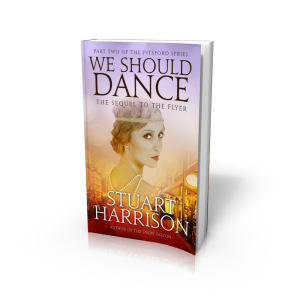
happened. My mistake. I apologise if you have downloaded one of the problem files and it spoilt your enjoyment. I always get my books edited by a paid service, but somehow I think I uploaded the wrong file this time. Won’t happen again.
More positive news, for me anyway, is that 30 000 plus (Free) copies of The Flyer have now been downloaded. Hopefully a decent percentage of those readers will buy the second book in the series, We Should Dance, and I’ll be able to continue writing for a bit longer!
Number three in the series, The Girl Who Listened, is in the rewrite stage. I know I’ll never make a June release now, but I’m still hopeful for July.
May 29, 2014
Third book in the Pitsford Series
I thought I better post an update on progress of book three in the Pitsford Series, following on from The Flyer and We Should Dance. I’ve almost finished the first draft which has taken a bit longer than I’d planned, but writing a novel is never easy and this has been no exception. Having said that, I’m pleased with the story, which is called The 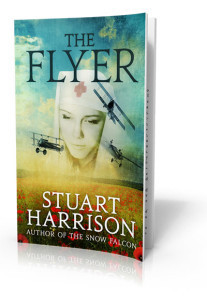 Girl Who Listened.
Girl Who Listened.
The principle characters are Rose and David, who appeared in We Should Dance as children. The story revolves around Rose, who in 1940 at the age of nineteen has joined the Women’s Auxiliary Air Force (WAAF) in Britain and trained as a radio operator working on the top-secret radio direction finder network, which was the first radar system. This is where the title comes from. In the story the network, known as Chain Home, is under threat from a plan to sabotage it by the Abwher, the German Intelligence Service. The plan is crucial to the Nazi intention to invade Britain following the evacuation of British forces from Dunkirk. The novel is essentially a spy story, though as in all of my books, it’s the relationships between the characters that really drives the story.
I’m having the cover art work done now, and I hope to publish in late June, though that could push out to July, depending on how long the re-write takes.
could push out to July, depending on how long the re-write takes.
To gain some exposure for my writing, I made The Flyer a free download last week, and though I haven’t publicised it, so far ten thousand readers have taken advantage of the opportunity and new reviews are beginning to appear on Amazon. They’ve all been 5 stars, which is pretty encouraging. As a result, the sequel, We Should Dance, has begun to sell so I’m looking forward to seeing reviews for that one too. Early feedback from readers has been terrific.
Thanks to everyone who has shared links and posted reviews, your support is very much appreciated.
May 22, 2014
Buy The Snow Falcon for 99c Five days only!!!!
The international best-seller that continues to get rave reviews is on sale as an ebook from Amazon for 99c. This is the revised and fully re-written version from last year. Make the most of it, because I didn’t really mean to do this! My mistake, but m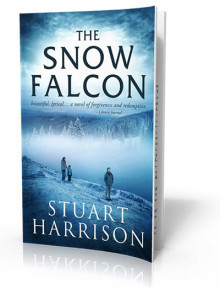 aybe I’ll get some new readers from it.
aybe I’ll get some new readers from it.
May 13, 2014
The Flyer is FREE!!
My novel, The Flyer, which is the first book in the Pitsford series is FREE to download as an ebook from Kobo or Smashwords. You can download the Kindle version from either place. It’s 99c on Kindle from Amazon, because they don’t allow me the free option, however that may change soon when they price match.
May 7, 2014
We Should Dance (Sequel to The Flyer) Now Available in Print
As of today, you can buy We Should Dance in print from Amazon.
I know there are plenty of people who still like to read actual paper books, rather than read on devices like Kindle. I used to think that way too, until I understood that Kindles , Kobo readers and so on are not like computer screens or ipads/tablets or whatever. Because the screen isn’t backlit it’s just like reading a paper book. (except with the Kindle Fire which I would never buy).
, Kobo readers and so on are not like computer screens or ipads/tablets or whatever. Because the screen isn’t backlit it’s just like reading a paper book. (except with the Kindle Fire which I would never buy).
The only difference really is that with an ereader you have options at your fingertips, like changing the font size, instant dictionary, note taking etc etc. Best of all though, in my opinion, you can buy new books anytime and very quickly, either directly using your device or by ordering on your computer and having the book sent directly to your device. It’s there in seconds, ready to read, literally. The other things is that ebooks are often a lot cheaper than buying paperbacks. Plus, no clutter.
Okay, end of sell. We’ll all be doing it this way one day, though.
Right now, I’m working on the third instalment of the Pitsford Series, and as of today I’m about a third of the way there. I’m about to brief the art people for the cover so that once the editing is complete on this one I’ll be able to get it out straight away. Hoping for late June at this stage, so long as the writing continues to go well.
This third story is set in 1940 in England, and the main characters are the next generation of characters from the first two novels. Like those, and like The Snow Falcon, it’s a love story, but with other elements that make for an exciting read. In this case the various character’s work out their relationships against a story of wartime espionage. It all takes place just before the Battle Of Britain, when it seemed certain that Britain would be invaded by Germany.
In other news, my old publishers, Harper Collins in England, are talking to me again – sort of. I’m hoping we can find ways to work together that will include a mass market printing of The Flyer and others (though I might be jumping the gun a bit). One way or the other though, Stillwater and Better Than This will become available as ebooks later this year.
Okay – back to the writing.
April 29, 2014
We Should Dance Published (Sequel to the Flyer)
I had promised to publish the sequel to The Flyer by the and of April. Well, I just made it. We Should Dance has been uploaded to Amazon as an ebook and should be available 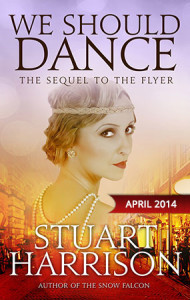 to buy within the next twelve hours. Hurrah! Well, I’m pretty happy anyway.
to buy within the next twelve hours. Hurrah! Well, I’m pretty happy anyway.
The ebook for Kobo and other online sellers will probably be uploaded later today. Some of them are pretty fast, but I do Nook and ibook through Smashwords, which takes a bit longer.
The print version, which will be available for order through Amazon, will be a bit longer too, say another few days to a week. Once I know it’s there I’ll post an update.
So this book is part two of what I’m calling The Pitsford Series, and right now I’m working on part three, which I hope to release in June, though it might end up being July. We Should Dance is set in both England and America and revolves around the characters from The Flyer, plus a few new ones. The third book, as yet untitled, is set in England again, but the characters are the next generation. The entire story takes place in 1940 and is actually a WW2 spy-come-adventure story, though like the others in the series it’s the emotional relationships between the main characters that counts.
After part three I’m going to write a new series about the birth of Hollywood. I see this series as covering perhaps three books, at least two of which I’ll publish this year. I became very interested in this subject while I was writing We Should Dance, and I’d like to go back to it. I already have my main female character in mind, based on a real-life person I read about, but more of that in the future.
Right now, I hope that people enjoy We Should Dance. If you do enjoy this and other titles of mine, please consider posting reviews on Amazon or Goodreads or wherever you go, and do share with your Facebook and other social media friends, even people you actually meet and talk to face to face, the old-fashioned way. This is much appreciated by me and I thank you in advance.
Finally, I’m in the process of bringing out a couple of my old titles out as ebooks too. They are Stillwater and Better Than This. It’ll probably take me a couple of months but keep an eye out for them.
April 21, 2014
Snow Falcon Reviews
Canberra Sunday Times
Pulls all the right levers … Residually poetic.
Adelaide Times
Riveting narrative.
Ft Lauderdale Sun-Sentinel
A slam-bang read, artfully crafted and engagingly written.
Women’s Weekly
A special story…
Booklist
Entertaining…Engrossing
San Antonio Express News
Harrison writes superbly.
UK Daily Mail
Smart…Absorbing.
Nelson DeMille International bestselling author
As tough as it is tender… an exceptionally well woven tapestry of romance and danger.
Des Moines Sunday Register
It is a rare work of fiction so fascinating that a reader comes to the last sentence and immediately wants to begin the story again … a talented novelist…
UK Daily Mirror
A very good book… Harrison is set to become a literary star.
Library Journal USA
This novel has great elements – action, adventure, romance, drama and a teaspoon of sadness and regret. Highly recommended.



